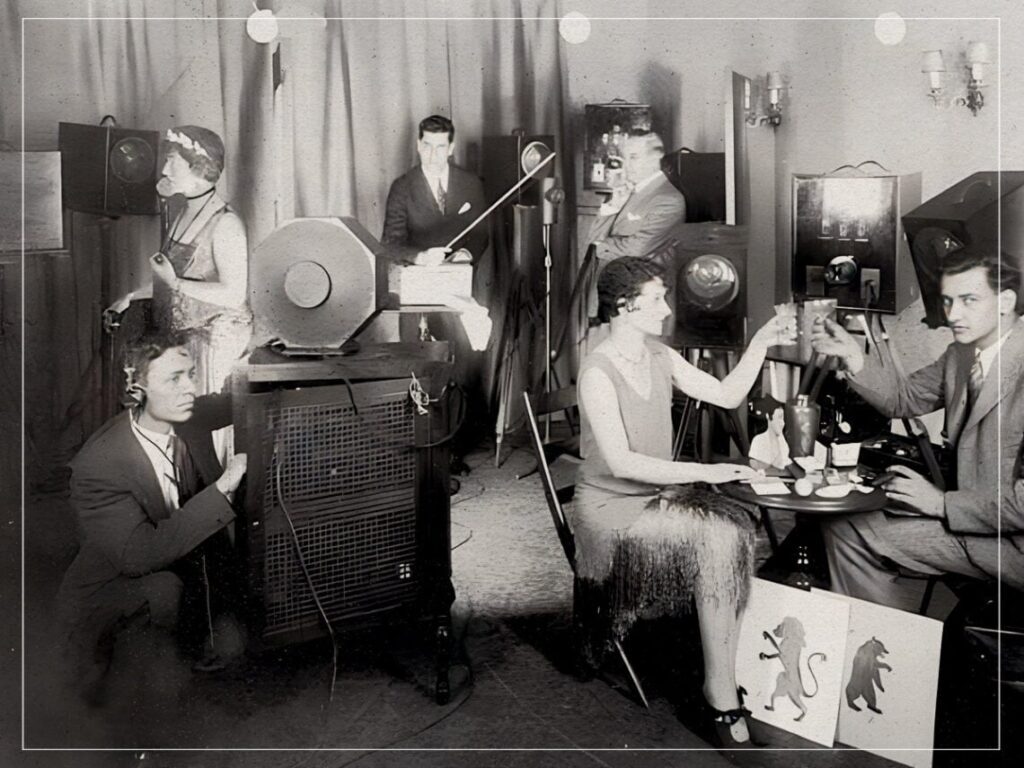‘The Queen’s Messenger’: the first ever television drama
 Posted On
Posted On
(Credits: Far Out / WGY)
Drama has become one of the most popular genres on our television screens. From Emmy-winning series such as Succession to teen shows like Euphoria and Riverdale to historical dramas like The Crown, dramatic stories have come to dominate the TV landscape. Viewers seem to crave serious, well-written content and characters to immerse themselves in, and production companies have responded accordingly.
It’s difficult to imagine a time before HBO dramas and stirring Netflix originals, but the genre had to start somewhere. And that somewhere was New York in the late summer of 1928, courtesy of playwright J Hartley Manners, director Mortimer Stewart, and production company General Electric. Together, they broadcasted the first drama on television, The Queen’s Messenger.
Before The Queen’s Messenger was a television show, it was a radio drama. And before it was a radio drama, it was a play penned by Manners. The 40-minute play follows a romance between an unsuspecting diplomat and a Russian spy who is hoping to steal his private papers. Izetta Jewel starred as the spy, while Maurice Randall played the British officer. No other characters appeared in the show.
On September 11th, 1928, the play was broadcast by General Electric to tiny televisions across the city, kickstarting television as we know it today. Although it’s now difficult to imagine watching a show with only two characters on a screen just three inches in diameter, The Queen’s Messenger marked the first time that a drama had been broadcast on television.
Stewart and his stars likely had no idea what they had set into motion with The Queen’s Messenger. By the 1940s, the Golden Age of Television would usher in a newfound interest in the genre and television as networks produced more content. The interest in drama has yet to waver.
The 1950s pushed drama into supernatural territory with the beloved The Twilight Zone. The 1960s proved that there was an ongoing interest in spy dramas with Mission: Impossible and spawned long-running dramatic shows, also known as soap operas, like Coronation Street. The 1970s brought us humorous dramas like M*A*S*H. The drama shows just kept coming.
Now, almost an entire century after The Queen’s Messenger hit those tiny television screens, drama has progressed massively. Production is no longer limited to 40 minutes, with two actors, black-and-white visuals, and the capabilities of early special effects. It can take us to entirely new worlds, from the chaotic kitchen of The Bear to the supernatural goings-on of Stranger Things.
Contemporary dramas are more ambitious than ever before. Game of Thrones boasted hundreds of extras, each dressed in their own fantastical costume. Euphoria features gorgeous neon cinematography deserving of a flat-screen rather than a three-inch TV. Succession shows off some of the best dramatic writing in television history.
Dramatic production has come a long way, but the ideals and examples set out by The Queen’s Messenger remain in place. Adaptations from plays and novels still find their way onto our television screens – from Game of Thrones to Fleabag – and espionage and spy dramas are still just as well-loved – take Killing Eve, for example.
The Queen’s Messenger may pale in comparison to dramatic television as we know it now, but it was a formative piece of art that allowed dramatic television to grow and thrive.
[embedded content]
Related Topics


